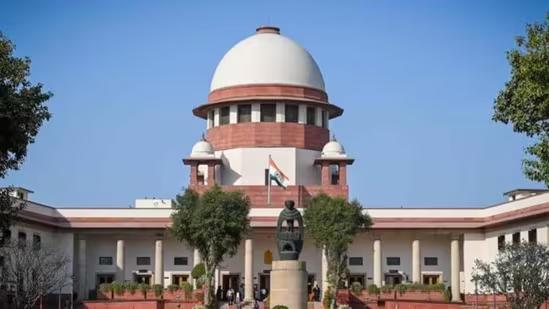
Title: Court Can’t Grant Assent to Bills, Only Guv & Prez Can: Maha to SC
In a recent development, the Maharashtra government has argued in the Supreme Court that it is not the court’s prerogative to grant assent to bills passed by state assemblies. According to the state government, only the Governor and President of India have the power to grant assent to bills, and the court cannot assume this responsibility.
The argument was made by Senior Advocate Harish Salve, who was representing the Maharashtra government during the hearing of the presidential reference on whether the court could impose timelines for the Governor and President to deal with bills passed by state assemblies. The presidential reference was filed by the Centre, seeking the Supreme Court’s guidance on the matter.
The Maharashtra government’s argument is based on the Constitution of India, which gives the Governor and President the power to grant assent to bills passed by the state assemblies and Parliament, respectively. The government claimed that the court’s role is limited to interpreting the Constitution and determining the validity of laws, but it does not have the power to grant assent to bills.
Salve argued that the court’s intervention in granting assent to bills would be violative of the Constitution and would undermine the powers of the Governor and President. He further stated that the court’s role is limited to ensuring that the laws passed by the legislature are constitutional, and it does not have the power to usurp the powers of the Governor and President.
The Maharashtra government’s argument is supported by the Constitution (Sixty-ninth Amendment) Act, 1991, which changed the Constitution to provide that the President shall give his assent to a Bill passed by both Houses of Parliament, and that the Governor shall give his assent to a Bill passed by the State Legislature. The amendment was made to clarify the powers of the President and Governor in granting assent to bills.
The Centre’s presidential reference was filed after the Madras High Court issued a judgment stating that the court had the power to impose timelines for the Governor and President to deal with bills passed by state assemblies. The Centre argued that the court’s judgment was incorrect and was violative of the Constitution.
The Supreme Court is expected to deliver its judgment on the matter in the coming weeks. The court’s decision will have significant implications for the functioning of state assemblies and the powers of the Governor and President.
In conclusion, the Maharashtra government’s argument that the court cannot grant assent to bills and only the Governor and President have that power is based on the Constitution of India and is supported by the Constitution (Sixty-ninth Amendment) Act, 1991. The court’s role is limited to interpreting the Constitution and determining the validity of laws, and it does not have the power to usurp the powers of the Governor and President.






